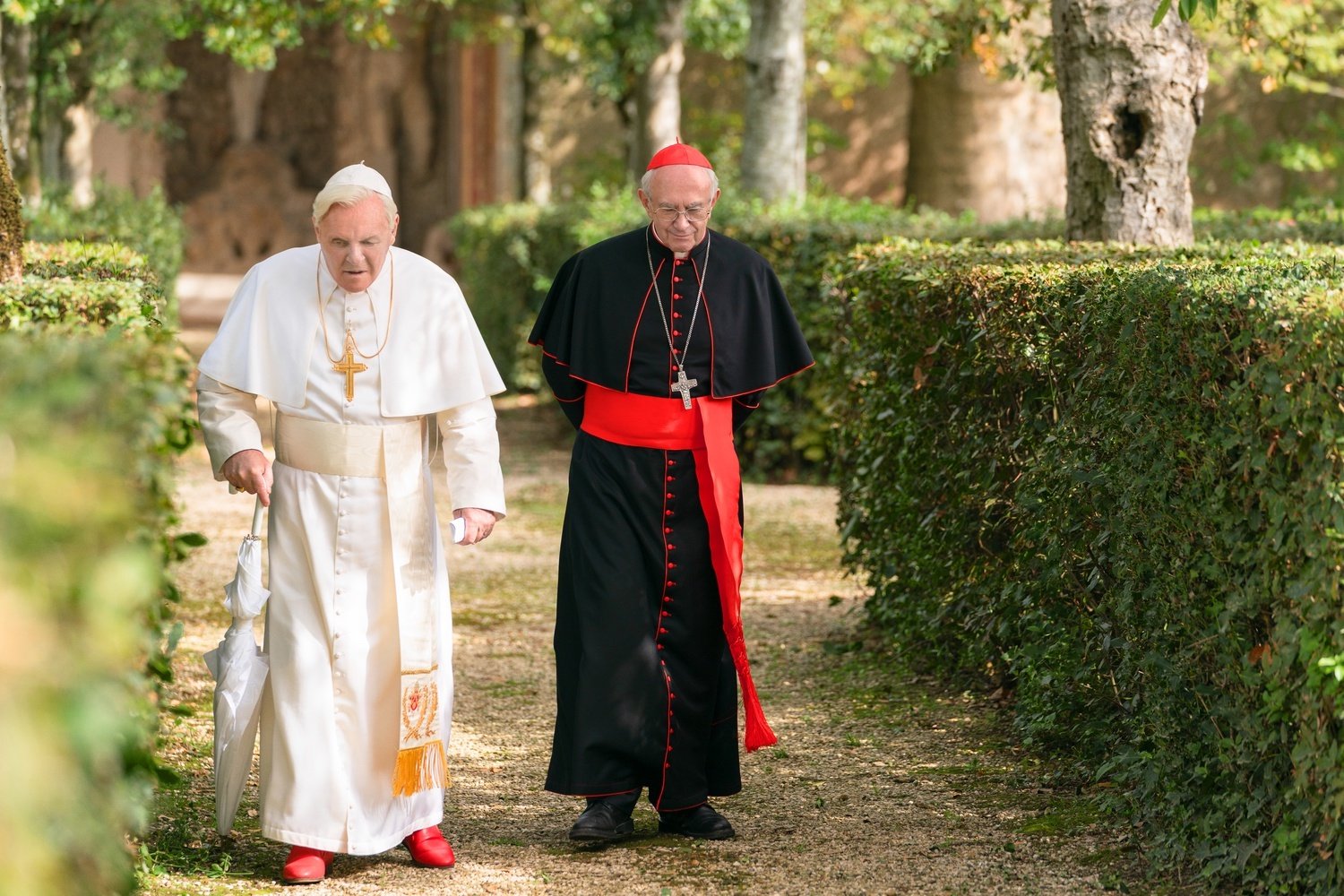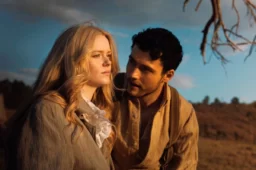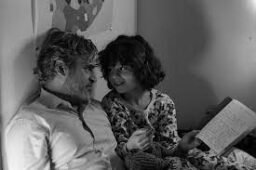
REVIEW: The Two Popes
- January 01, 2020
- by
- Ivan Moore
Comedian John Mulaney hosted Saturday Night Live earlier this year and joked about the idea of his Jewish wife converting to Catholicism, “How would I even have that conversation? What, do you come home with a brochure, and you’re like, ‘Hey, honey, allow me to tell you about an exciting not-new organization. Don’t Google us!’”
And so the joke has gone for many years now, especially since the early 2000’s due to the string of articles from The Boston Globe’s investigative journalism team. The Catholic church has a marred reputation that has been rooted in scandal and the unimaginable trauma of thousands of victims. Even more recently, a 2018 investigation conducted across the dioceses in Pennsylvania revealed 1,000 victims involving 300 priests in that state alone. There are big questions about the health and future of this global organization. Netflix and Oscar nominated director Fernando Meirelles are asking those questions in their new film, The Two Popes.
In the film, Meirelles and The Theory of Everything writer Anthony McCarten imagine several conversations between Pope Benedict XVI and, then, Cardinal Jorge Bergoglio who would go on to be Pope Francis. The conversations in the movie, that are shot with an almost documentary style, are based on some meetings that did take place between the two figureheads, but they are also based on a huge cultural turning point within the church.
The Vatican needed more than a change in leadership, though that did happen when Benedict renounced his position and Francis was elected. They needed more than a return to charity and service, though Francis has made it a focus. They also needed more than addressing issues like climate change and sexuality, though Francis has shown incredible compassion in those arenas. What the catholic church needed was something far more powerful, repentance. The church needed to clean house at the top and clean house in their hearts. Confession is, ultimately, what Two Popes is about.
Whether they are protestant or catholic, church leaders are supposed to reflect Christ to those they serve. The Apostle Paul calls them “ambassadors” for Christ. The goal is that as someone meets you and experiences your love and service they are, in a way, meeting Jesus. How can you be anything but grieved, then, by the idea that, for thousands, Christ was an abuser? That grief is painted all over Jonathan Pryce’s face as he portrays Cardinal Bergoglio. The whole film is a delicate, nuanced dance between the two popes and Pryce’s dance partner is the legendary Sir Anthony Hopkins as Pope Benedict.
The two popes take jabs at each other’s stances on doctrine, tradition, and the direction of the church. Their conversations disturb the birds in the gardens of the Pope’s summer estate and echo against the painted walls of the Sistine Chapel. Hopkins’ Benedict snorts and scowls with guarded fear that Bergoglio desires to see the whole institution torn down. The Cardinal pleads and cries with desperate urgency that the culture Benedict has created is driving people out of the pews. They both are wrestling with being a part of something that has caused so much harm and become the butt of the world’s joke.
When the film shows you the global scale of the Catholic church or takes you into the mysterious election process, when you see the thousands of people gathered to stare at a chimney, it is easy to feel the authority the Pope has. Both Benedict and Bergoglio brought great authority into these conversations. They had served for decades. Benedict very much had his mind set on the past while Bergoglio had his feet planted and eyes focused on the future.
Jesus has the greatest authority in the universe. Being Christ-like takes authority, but they get absolutely nowhere by swinging their experience and knowledge back and forth. Being Christ-like also takes profound vulnerability. Jesus could heal the leper and make the blind man see but at the end of the day he hung on the cross exposed to the world. To end the stalemate in the film, that’s exactly where the two popes have to go, to the cross. The third act of the film is one of vulnerability and confession.
While watching the film, I found myself laughing at the joke. That’s all we can do with our pain sometimes, right? Laugh at it. Take away its power by making it a joke, and the pomp and the arrogance of this ancient tradition played right into the comedy. By the end, though, as these two men are baring their souls to one another, my eyes were on the cross and the reconciliation I’ve seen in my own life. I’m not sure if the world will ever forgive the Catholic church for their grave injustices, but I do know one way to find forgiveness is to ask for it.






